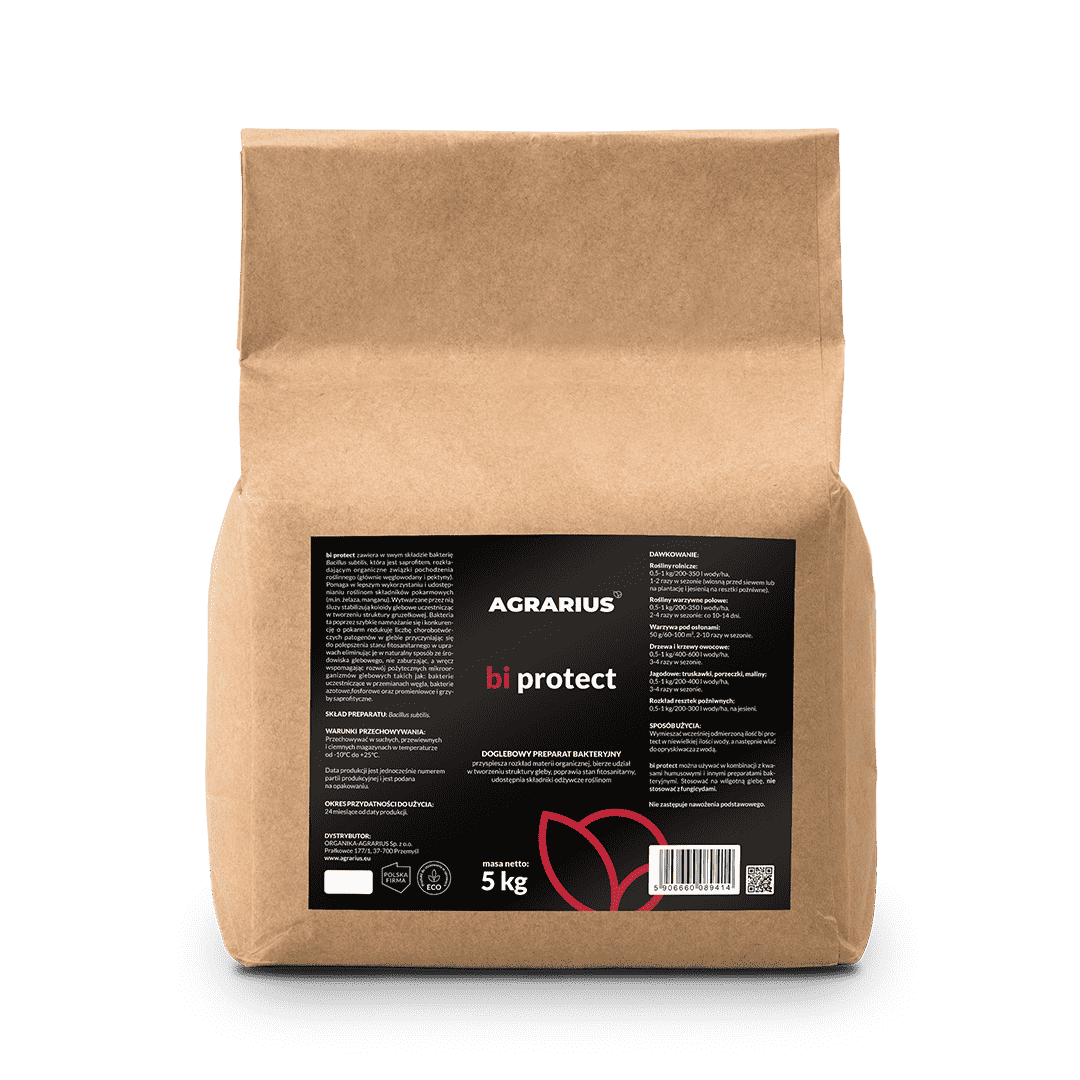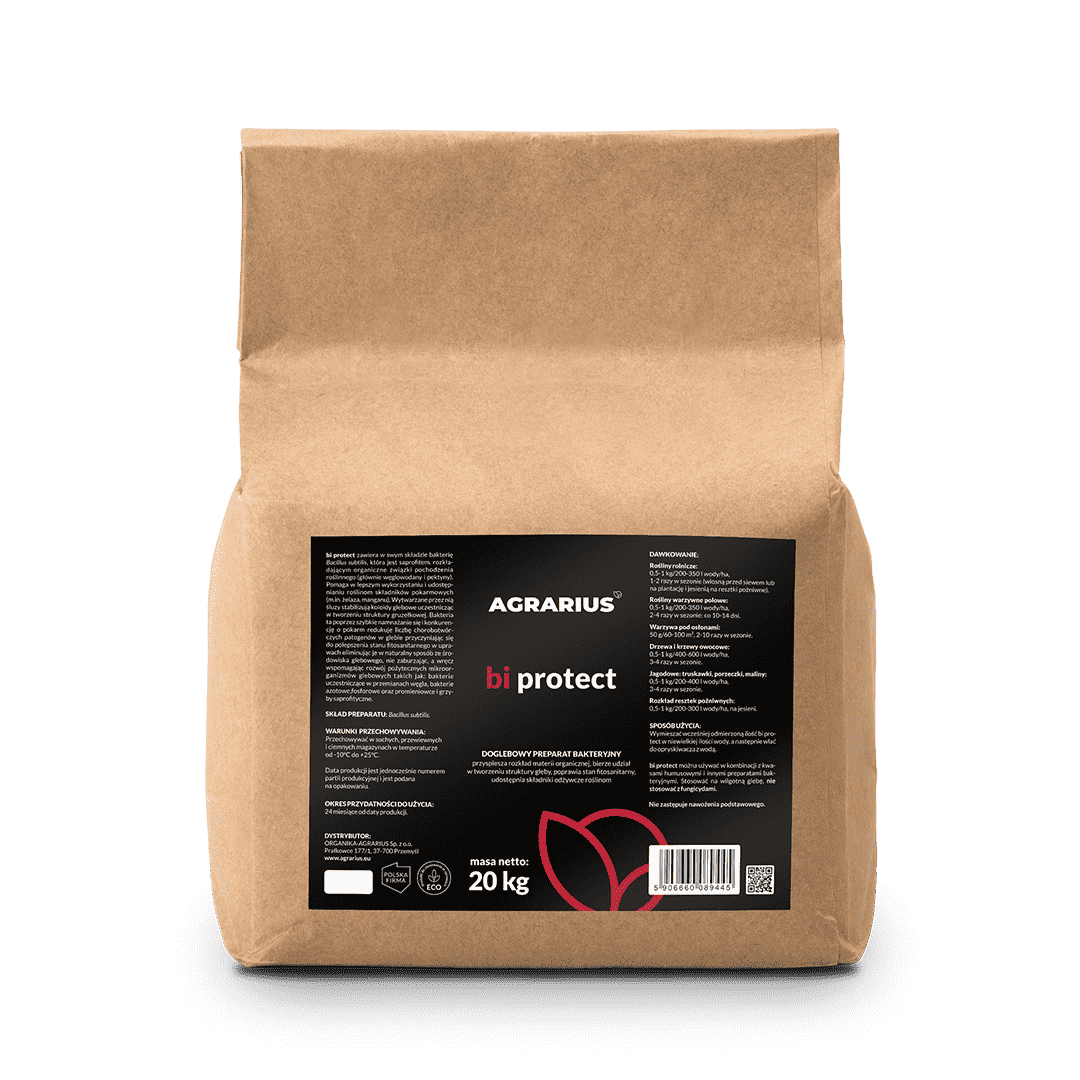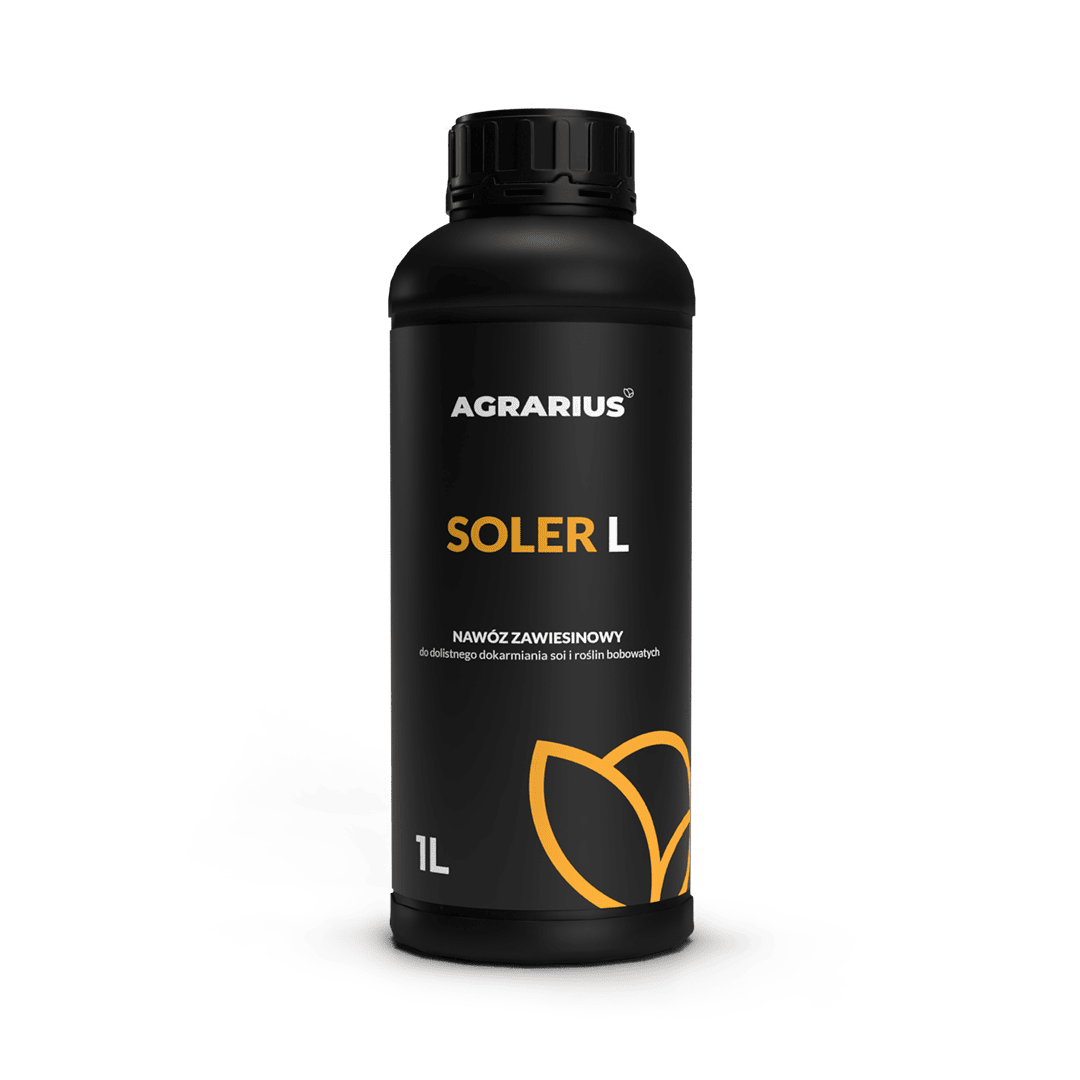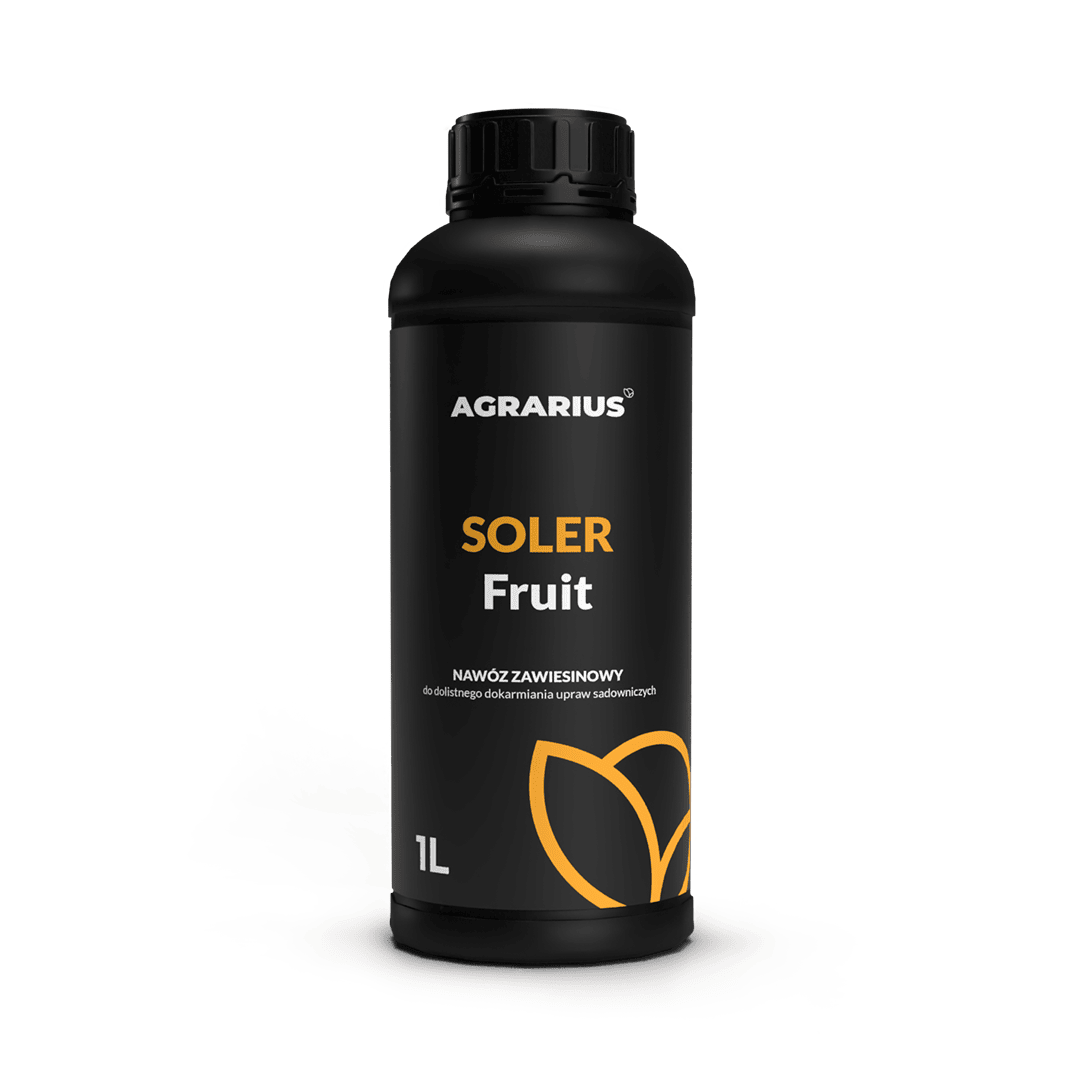bi protect
Zdrowotność roślin
Sypka forma preparatu jest kluczowa dla utrzymania jego długotrwałej skuteczności. Bakterie zawarte w bi protect pełnią istotną rolę w uruchamianiu procesów biologicznych w glebie, wspierając rozkład materii organicznej. Nawóz mikrobiologiczny uczestniczy w formowaniu koloidów glebowych oraz poprzez naturalne metody, wspomaga zdrowotność roślin walcząc z patogenami.




Zalety stosowania:
Opis produktu:
Bakteria Bacillus subtilis jest powszechnie obecna w glebie naszej strefy klimatycznej i jest saprofitem rozkładającym organiczne związki pochodzenia roślinnego – głównie węglowodany i pektyny. Dodatkowo, bakteria wytwarza antybiotyki peptydowe, takie jak subtylinę i polimyksynę B, a także produkuje aminokwasy, polisacharyd o nazwie „inulina” oraz enzymy takie jak amylaza i proteaza.
Bakteria wydziela siderofory, takie jak bacillobaktyna, które mają zdolność do wiązania jonów żelaza, tworząc chelaty z różnymi dostępnymi formami żelaza i ułatwiając ich dostępność dla roślin. Białka obecne w tych bakteriach zawierają również hydrofobinę bsIA, która działa zmniejszając napięcie powierzchniowe. To z kolei zwiększa zwilżenie powierzchni, na której się rozwijają korzystne mikroorganizmy, prowadząc do poprawy wilgotności w okolicy systemu korzeniowego i tworzenia dodatkowej warstwy ochronnej. Jest to bardzo istotne zwłaszcza podczas okresów suszy. Dodatkowo zawarte w bi protect bakterie Bacillus subtilis stabilizują koloidy glebowe zapewniając łączenie się minerałów w agregaty.
Ostatnim istotnym elementem bakterii Bacillus subtilis jest zmniejszenie liczby chorobotwórczych grzybów i bakterii w glebie, co sprzyja poprawie stanu zdrowotnego roślin i zwiększeniu stanu fitosanitarnego upraw. Dzięki szybkiemu namnażaniu się, bakteria ta konkuruje z innymi patogennymi mikroorganizmami o pokarm i przestrzeń, co naturalnie eliminuje je ze środowiska glebowego. Tym samym nie tylko redukuje obecność szkodliwych patogenów, ale także sprzyja wzrostowi korzystnych mikroorganizmów w glebie, co wspiera jej naturalne środowisko.
| UPRAWA | DAWKOWANIE | STOSOWANIE |
|---|---|---|
| Rośliny rolnicze | 0,5-1 kg/200-350 l wody/ha | 1-2 razy w sezonie (wiosną przed siewem lub na plantację i jesienią na resztki pożniwne) |
| Rośliny warzywne polowe | 0,5-1 kg/200-350 l wody/ha | 2-4 razy w sezonie: co 10-14 dni |
| Warzywa pod osłonami | 50 g/60-100 m2 | 2-10 razy w sezonie |
| Drzewa i krzewy owocowe | 0,5-1 kg/400-600 l wody/ha | 3-4 razy w sezonie |
| Truskawki, maliny | 0,5-1 kg/200-400 l wody/ha | 3-4 razy w sezonie |
Dodatkowe informacje:
Preparat należy stosować na wilgotną glebę, najlepiej z dodatkiem kwasów humusowych co zwielokrotni namnażanie się pożytecznych bakterii. Preparatów mikrobiologicznych nie należy stosować w czasie słonecznej pogody, suszy oraz nie wolno mieszać z fungicydami.
Preparat bi protect został zatwierdzony przez Instytut Uprawy Nawożenia i Gleboznawstwa do stosowania w uprawach ekologicznych pod numerem (SE/27/2020).



